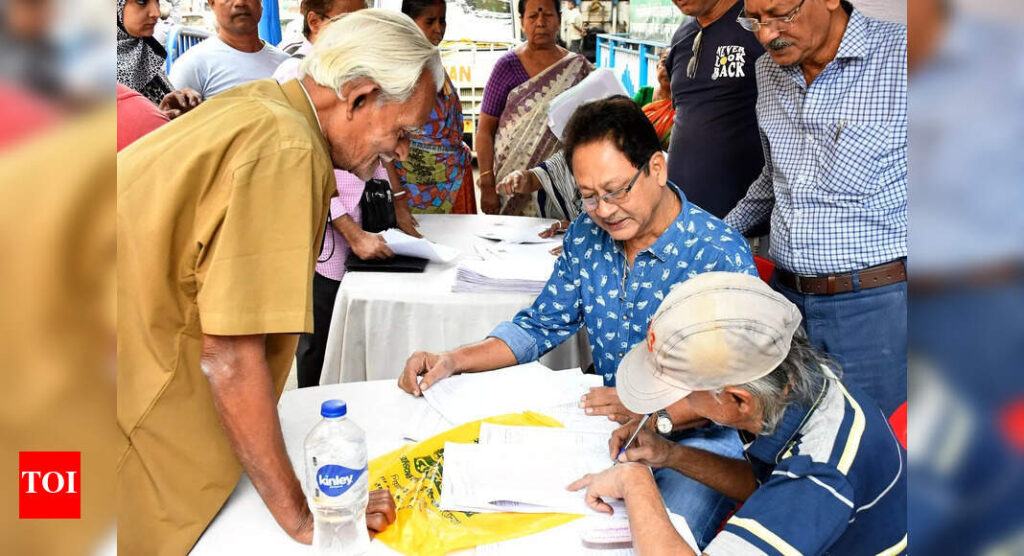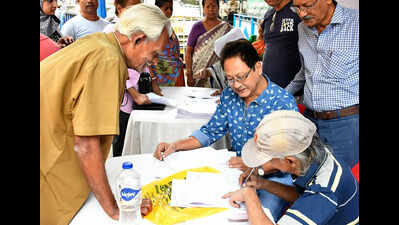Why no SIR in Assam, asks JMM | Ranchi News

Ranchi: With the special intensive revision (SIR) of electoral rolls underway in 12 states, Jharkhand Mukti Morcha (JMM) on Thursday questioned the Centre and the Election Commission why the exercise was not being conducted in Assam.Notably, after Bihar, SIR has begun across nine states and three union territories since November 4. Assam which is being governed by a BJP-led govt, is slated to go to assembly polls next year. SIR is currently underway in Chhattisgarh, Goa, Gujarat, Kerala, Madhya Pradesh, Rajasthan, Tamil Nadu, Uttar Pradesh and West Bengal. The UTs include Andaman and Nicobar, Lakshadweep and Puducherry.“We want to ask why Assam isn’t included in SIR when it is also slated to go to assembly elections early next year. ECI chose to do it in Bengal, but not in Assam. This again is a testimony to how BJP uses the EC to influence elections as Bengal is non-BJP ruled,” JMM central general secretary cum spokesperson Supriyo Bhattacharya said.The BJP however rejected JMM’s claims and called it baseless. “The EC has announced SIR in phases in whole country. If JMM and other opposition parties see bias in this, it is only because they have systematically sheltered the Muslim infiltrators from Bangladesh and turned them into their vote bank,” BJP state spokesperson Pratul Shahdeo said.Sources in the EC said Assam’s exclusion from SIR is due to the section 6A of the Citizenship Act, a provision exclusive to Assam. It was introduced following the 1985 Assam Accord, which sought to address decades of unrest over illegal immigration from Bangladesh. This section sets March 24, 1971, as the cut-off date for determining citizenship in Assam — a timeline that differs from the rest of India and reflects the state’s distinct demographic challenges.Further complicating the situation is the Supreme Court-monitored updating of the NRC of 1951 is aimed at identifying genuine Indian citizens in the state. The final NRC list, published in 2019, excluded nearly 1.9 million people, sparking legal battles, political debates, and widespread anxiety. The process remains incomplete with the Supreme Court yet to accept the final list.






